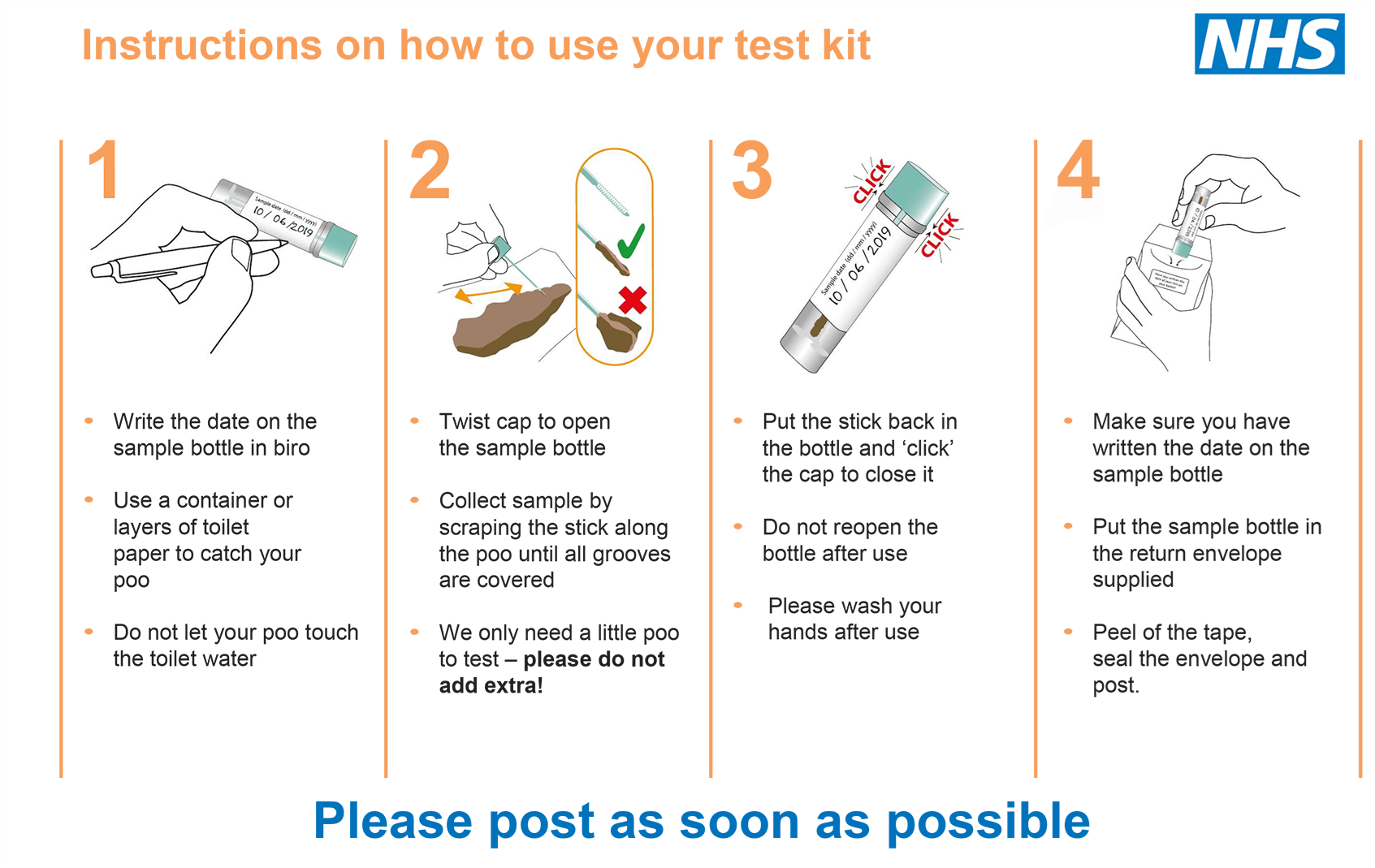Bowel Screening
What is bowel cancer screening?
The NHS offers bowel cancer screening using a home testing kit to everyone in England from the age of 60. We provide the NHS with your contact details so please make sure we always have your correct name, date of birth and address, and it doesn't hurt to update us with your mobile number and email address too.
The NHS offers screening every 2 years between the ages of 60-74, and are gradually extending this age range, and people aged 56 are now being invited as part of this process. If you are over 74, you can ask for a kit every 2 years by calling the free helpline on 0800 707 60 60.
Bowel Cancer Screening Campaign
This latest phase of NHS England’s ‘Help Us, Help You’ campaign is designed to encourage people who are sent the NHS bowel cancer screening home test kit to complete and return it. The campaign launches on Monday 20th February and runs until 31st March 2023. It is supported by Cancer Research UK.
Bowel cancer is the fourth most common cancer in the UK. Yet the latest data shows that almost one third of people who were sent an NHS bowel cancer screening kit in England last year did not go on to complete it. Early diagnosis is vital, as detecting bowel cancer at the earliest stage makes you up to 9 times more likely to be successfully treated.
Please note: If you've damaged or lost your test kit, it can be replaced by calling the free helpline Mon to Fri, 8:00am - 5:00pm on 0800 707 60 60.
Risks of developing bowel cancer
Everyone, whatever your sex, is at risk of developing bowel cancer. Things that can increase your risk include:
- getting older (8 out of 10 people diagnosed with bowel cancer are over 60)
- not being active enough
- being overweight
- a diet high in red and processed meat and low in fibre, vegetables and fruits
- smoking
- drinking too much alcohol
- having type 2 diabetes
- having inflammatory bowel disease (ulcerative colitis or Crohn’s disease)
- a family history of bowel cancer
Reduce your risk of bowel cancer
Having bowel cancer screening reduces your risk of dying from bowel cancer by at least 25%.
You can also reduce your risk of bowel cancer by:
- keeping physically active
- keeping a healthy weight
- eating plenty of fibre – for example, choose wholegrain and wholemeal foods
- eating plenty of vegetables and fruit
- eating less red meat and especially less processed meat
- drinking less alcohol
- not smoking
Unsure how to use your FIT Test?

Page created: 10 September 2021